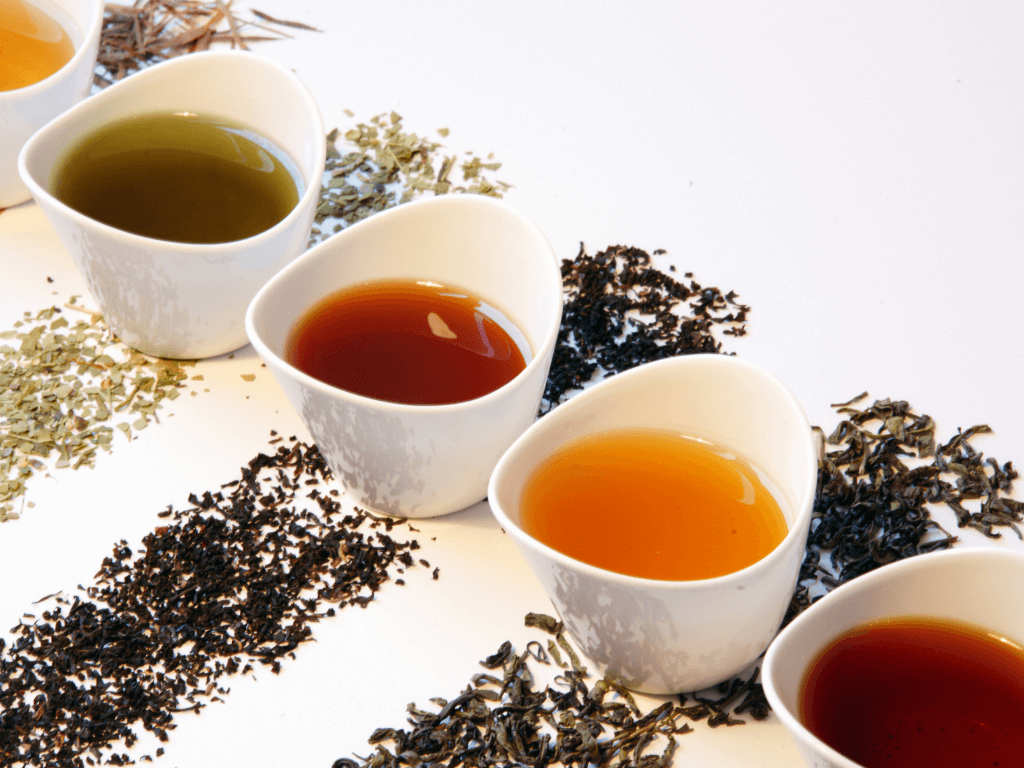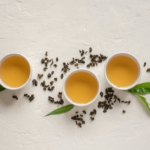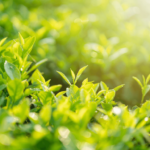Discover the Different Types of Japanese Tea: A Comprehensive Guide

Welcome to our in-depth guide on the various varieties of Japanese tea. Japan is renowned for its love and appreciation for tea, and the country produces hundreds of unique varieties and grades. In this article, we will explore the different types of Japanese tea, including the popular matcha and sencha teas, as well as other lesser-known teas such as hojicha, mugicha, genmaicha, sobacha, gobocha, and kombucha. We will also discuss the popularity of green tea in Japan, its health benefits, and its significance as a staple in the Japanese diet. So, grab a cup of your favorite Japanese tea, and let's dive into the rich and diverse world of Japanese tea culture.
Types of Japanese Tea
When considering the various kinds of tea from Japan, there is an array of options to select from. Green tea, perhaps the most iconic type, is commonly consumed in Japan and comes in different varieties such as sencha, hojicha, and genmaicha. Sencha yields a bitter taste, whereas hojicha has a roasted flavor. Genmaicha, on the other hand, is a mixture of green tea and roasted brown rice. Other than green tea, there are further varieties of Japanese tea, including matcha, which is a type of powdered green tea. Matcha is made from shade-grown tea leaves and has a unique flavor and aroma. Other styles of Japanese tea include soba cha, gobo cha, and kombucha, each with its own qualities.
To experience the full range of Japanese tea types, it is important to learn about the different flavors, aromas, and brewing techniques. For instance, sencha is brewed at a higher temperature while matcha requires whisking the powdered tea with hot water. Furthermore, Japanese tea is graded according to its quality, with high-grade versions typically having a sweeter taste and delicate flavor. Whether you prefer a bitter or sweet taste, there is one type of tea in Japan that will suit your preference. Exploring the various kinds of tea from Japan can be an enjoyable journey, and you may even find a new favorite.
Matcha Tea
Matcha tea has become a global phenomenon, due to its unique preparation and health advantages. This verdant beverage is made from tea leaves that have been shaded from sunlight, then ground into a powder. Matcha is not brewed but whisked with hot water to create a foamy, velvety texture. The ceremonial preparation of this tea is an ancient, traditional custom that has been passed down for generations. Not only does matcha tea have an exquisite flavor, but is also teeming with beneficial nutrients such as antioxidants and amino acids. If you are looking to explore diverse varieties of tea, matcha should be at the top of your list.
Matcha is known for its distinct, earthy, and grassy flavor, accompanied by a subtle sweetness. Its stunning green hue is derived from the high presence of chlorophyll. Japanese tea experts regard matcha as the finest quality of tea due to the intricate cultivation process. To ensure the utmost freshness, the tea leaves are hand-selected, steamed, and dried before being ground into powder, and then stored in airtight containers. Drinking matcha tea is not only a pleasant treat for the taste buds but also a way to immerse oneself in the deep-rooted culture of Japanese tea.
Sencha Tea
A popular and widely-consumed type of green tea is Sencha. This beverage is made by steaming and drying the leaves of the Camellia sinensis plant, creating a flavor that is slightly bitter with a sweet and vegetal aftertaste. Not only does it boast a high antioxidant content, making it a great choice for boosting the immune system, but it also contains caffeine, providing an all-natural energy boost.
A distinguishing factor in the production of Sencha is that it is grown in direct sunlight, giving it an intense flavor profile and a vivid green hue. It is also versatile, as it can be enjoyed hot, cold, or even as an ingredient in mixed drinks.
- Asamushi sencha is slightly steamed and has a delicate flavor.
- Fukamushi sencha is heavily steamed and has a strong flavor.
No matter what type of Sencha tea you choose, you'll surely enjoy the unique and delicious flavors that it has to offer.
Other Types of Japanese Tea
Are you an avid tea enthusiast? If so, then you should take your palate on an adventure to explore the wide range of tea varieties Japan has to offer. From robust sencha to delicate hojicha, these teas provide a unique and flavorful experience unlike any other.
Indulge in the nutty aroma of roasted hojicha, the smoky flavor of mugicha, the toasty taste of genmaicha, or the refreshing summer beverage that is soba cha. Discover the health benefits of gobo cha and kombucha. All these and more are available to sample and savor, so why not expand your tea horizons and find a new favorite? You won't be disappointed!
Green Tea Popularity in Japan
The Camellia sinensis plant is the source of an integral part of Japanese culture: green tea. This refreshing beverage has been a favorite in the country for centuries, and its popularity shows no signs of waning. People of all ages enjoy its pleasant flavor and numerous health benefits, making it a staple in the daily lives of the Japanese.
Not only is green tea the most consumed type of tea in Japan but there are also numerous other varieties to explore. From the bold taste of sencha to the delicate sweetness of matcha, each variety is unique and offers its own distinct flavor. Tea lovers are sure to find something to satisfy their taste buds in the wide selection of teas made from the Camellia sinensis plant.
Popular Varieties of Japanese Tea
Tea lovers who are eager to explore the delicious world of tea can find many popular varieties to choose from. A highly regarded type is matcha tea, which is made from shade-grown tea leaves that are ground into a fine, vibrant green powder, giving it a sweet and bitter taste. This type of tea is often used in traditional Japanese ceremonies and is also quite popular in lattes and smoothies.
Sencha is another popular type of green tea. It is of high quality and has a strong, bitter flavor. This tea is made by steaming and rolling tea leaves, then commonly served hot in Japan. It can also be used in cooking and baking and is sometimes combined with other ingredients to create interesting flavor combinations.
Other varieties of tea that are worth exploring include hojicha, a roasted green tea with a nutty flavor and distinctive aroma; genmaicha, a blend of green tea and roasted brown rice; sobacha, made from roasted buckwheat; gobo cha, a type of black tea grown in Japan; and kombucha, a fermented tea beverage that many tout for its health benefits.
Japanese Tea is a Dietary Staple
A staple of the Japanese diet, tea is consumed every day. For centuries, it has been an integral part of the culture, so much so that it is served with almost every meal and is even given as a sign of respect. The variety of tea found in Japan makes it a perfect accompaniment to any occasion.
Tea can be incredibly beneficial to the diet. Its antioxidants help to strengthen the immune system, combat inflammation, and promote heart health. Weight loss and stress reduction can also be aided by regular tea consumption. In fact, the comprehensive part that tea plays in the Japanese diet is believed to be a major factor in the country's longevity and excellent health. With so many grades and types of tea available, it can be easy to incorporate this healthy beverage into your everyday routine.
Consuming Japanese Tea
For centuries, the art of consuming tea has been a celebrated part of Japanese culture. From the elaborate tea ceremonies to the simple act of brewing a cup at home, this ritualistic tradition has been known to soothe the mind and body. Small cups are typically used for a traditional tea, and it is custom to sip it in three portions to fully experience its flavor and aroma.
There are many ways to enjoy tea, depending on the type and personal preference. Hot tea is usually the go-to during colder months, though iced tea is popular in summer. Unsweetened iced tea is often served, allowing the natural sweetness of the tea to shine through. Tea bags are another popular solution, as they are easy to use and can be purchased at supermarkets and convenience stores.
Not only is tea enjoyable to drink, but it can also be beneficial to one's health. Green tea, in particular, has been scientifically proven to improve brain function, help with weight loss, and reduce the risk of chronic diseases such as cancer and heart disease. Other types of Japanese tea, like matcha, have been shown to have positive effects, including increasing metabolism and improving skin health. Incorporating tea into your daily routine not only enables you to savor its delightful flavor but also provides numerous health advantages.
Health Benefits of Japanese Tea
For centuries, the various health benefits of this beverage have been recognized. From boosting metabolism to enhancing brain function, the rewards of consuming this drink are abundant. In our comprehensive guide, let us explore the multitude of ways this beverage can benefit your overall well-being.
Antioxidants are paramount in neutralizing dangerous free radicals in the body, which can lead to serious ailments such as cancer and heart disease. This beverage, especially matcha, contains a high concentration of antioxidants, making it an ideal addition to any health-conscious diet.
The amino acid L-theanine, naturally occurring in this beverage, has been known to promote relaxation and reduce stress levels. By increasing alpha brain waves, it induces a state of calm, making it an excellent choice for those wanting to reduce their anxiety and improve their outlook.
Moreover, consuming this drink has been linked to improved mental functioning. The combination of caffeine and L-theanine can bring about improved memory, reaction time, and attention span. Regular consumption of this beverage can thus result in improved cognitive performance and heightened productivity.
Finally, this beverage has been connected to weight loss and metabolic enhancement. Green tea is renowned for its ability to increase metabolism and facilitate weight loss. By quickening the body's metabolic rate, it enables the efficient burning of calories, leading to a healthier weight and better health.
Conclusion
In conclusion, Japanese tea is a beloved part of Japanese culture and cuisine. From matcha to sencha to the lesser-known varieties, there is a tea for everyone to enjoy. As the most consumed type of tea in Japan, it is clear that the Japanese people understand the value and benefits of this drink. Whether enjoyed hot or cold, Japanese tea offers a myriad of health benefits that can enhance one's overall well-being. So, the next time you're in the mood for a warm or refreshing drink, consider trying one of the many varieties of Japanese tea that are available. You may just discover a new favorite of your own.
Leave a Reply




Related Posts